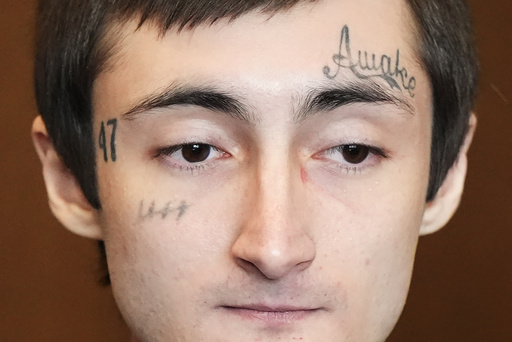CHICAGO (AP) — A man accused of killing seven people and injuring dozens more at a Fourth of July parade in suburban Chicago in 2022 will return to court next week for a possible change in his plea of not guilty, a prosecutor said Friday.
Robert Crimo III was scheduled to face trial next February on a raft of charges, including murder and attempted murder, for the shooting in Highland Park. The hearing set for Wednesday is a little more than a week ahead of the two-year anniversary of the attack.
“The case will be up on June 26 for a possible change of plea. We have been updating and supporting the victims as the situation has been developing,” Lake County State’s Attorney Eric Rinehart said.
A message seeking comment from the public defender’s office, which is defending Crimo, wasn’t immediately returned.
An attorney representing three family members wounded while attending the parade said prosecutors told them this week that Crimo is expected to change at least part of his earlier not guilty plea to guilty on Wednesday.
Mike Bonamarte, a managing partner with Levin & Perconti, represents Zoe and Stephen Kolpack, a married couple, and her father, Mike Joyce, in a civil suit against Crimo, his father and gun manufacturers and sellers.
Bonamarte said the Kolpacks’ main question is whether a change of plea will mean a life sentence.
“What Zoe said to me is she’ll feel better if she believes this is a step closer to some justice,” Bonamarte said. “But it doesn’t change the fact she’s going to deal with what happened for the rest of her life.”
Authorities have said Crimo, 23, confessed to police in the days after he opened fire from a rooftop in Highland Park, terrifying parade participants and spectators.
The case has moved slowly as attorneys reviewed reams of evidence including video footage.
In December, Crimo insisted to Judge Victoria Rossetti that he wanted to fire his public defenders and represent himself. He reversed that decision weeks later.
Crimo would face a mandatory sentence of life without parole if convicted of first-degree murder.
Separately, his father, Robert Crimo Jr., pleaded guilty last year to seven misdemeanor counts of reckless conduct.
In 2019, at age 19, Crimo III was too young to seek his own gun license, but he could apply with the sponsorship of a parent or guardian. His father agreed, even though a relative reported to police that Crimo III had a collection of knives and had threatened to “kill everyone.”
____
White reported from Detroit.


